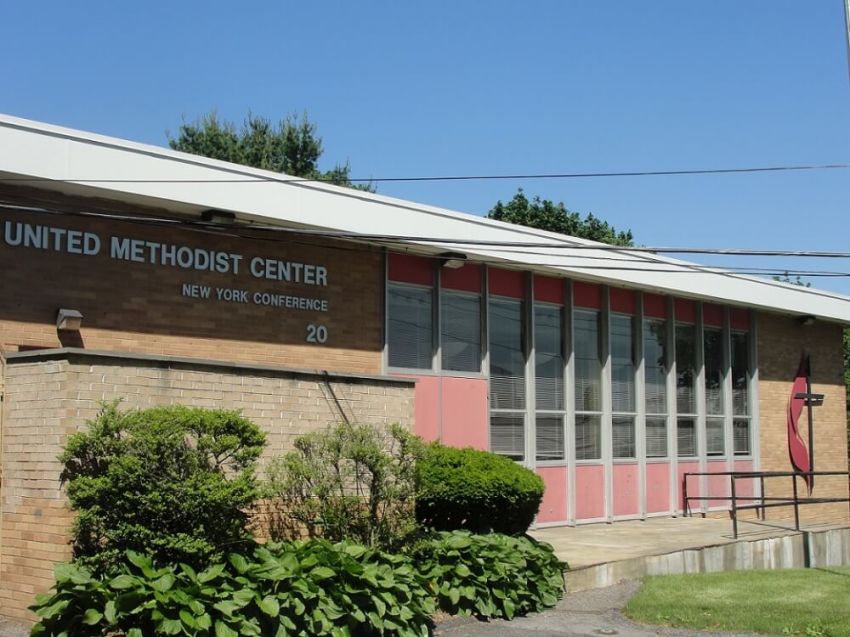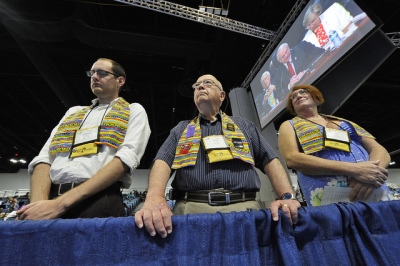United Methodist Boards Are Refusing to Follow Church Policy on LGBT Clergy

At least two regional bodies of the United Methodist Church have reaffirmed their refusal to enforce the Mainline Protestant denomination's prohibition on non-celibate homosexual clergy.
In April, the United Methodist Judicial Council, the Church's highest court, ruled that boards of ordained ministry must consider all qualifications for a clergy candidate, including questions of sexual ethics.
The New York and Pacific Northwest Annual Conferences have declared that they do not intend to change their boards' decision to not ask clergy candidates questions about their sexual practices.
"We reaffirm our statement from March 1, 2016, in its entirety," stated the New York Annual Conference, referring to their original declaration of refusing to include questions about sexuality in their ordination candidacy process.
"We recognize that other Boards of Ordained Ministry and Conferences have taken a similar stance against the denomination's unjust position regarding issues of human sexuality. We stand in solidarity with them and encourage others to join us."
The Christian Post contacted the New York Annual Conference for comment on this story but they were unable to provide a response by press time.
The United Methodist News Service reported that the Pacific Northwest Annual Conference has also reaffirmed its earlier position, with five other annual conferences possibly joining them.
Although the UMC Book of Discipline states that non-celibate homosexuals cannot be ordained, last year multiple regional conferences openly opposed the rule.
"The Oregon-Idaho conference board of ordained ministry joined Northern Illinois, Baltimore-Washington, Pacific Northwest and New York to consider all candidates for ministry without regard for their sexual orientations and gender identities," reported UMNS last summer.
"The New York conference ordained four openly gay clergy. The California-Nevada and California-Pacific conferences endorsed two openly gay clergy as bishop candidates and the Rocky Mountain Conference passed a resolution that sexual orientation and gender identity should not be a bar to election to the episcopacy."

Charles A. Parker, chair of the Baltimore-Washington Annual Conference BOOM, told CP last year that he did not believe their policy on LGBT ordination inclusion violated the UMC's central rule book.
"We believe that our policy walks a narrow line of allowing us to do the right thing, while staying within the bounds of the Book of Discipline," said Parker in 2016.
"So those who believe that our Church needs to change its restrictive language on LGBT people, but who are still committed to obeying the Book of Discipline, should be free to vote their consciences."
The Judicial Council disagreed, ruling in late April in Decision 1343 and 1344 that regional bodies had to consider all matters, including the sexual behavior of the clergy candidates.
"The board's examination must include all paragraphs relevant to election of pastoral ministry, including those provisions set forth in paragraphs that deal with issues of race, gender, sexuality, integrity, indebtedness, etc.," read Decision 1343.
John Lomperis of the Institute on Religion & Democracy told CP that he believed the actions of the two regional bodies was "sad but not surprising."
"The promotion by a few activists of a secularized false gospel is destroying the Church in these regions," said Lomperis.
"The official statistics from last year show the New York Conference declining by over 4 percent in membership and by over 6 percent in worship attendance, while the Pacific Northwest Conference lost nearly 4 percent of its members and over 4-and-a-half percent of its worshipers."
Lomperis also told CP that he saw these statements by the two regional conferences, and similar acts of resistance to Church rules on LGBT issues, as advancing schism.
"The United Methodist Church is very clear on our biblical doctrine and our covenant for how United Methodists live together," continued Lomperis.
"But when the leaders in these two conferences take such actions and openly declare that they are abandoning United Methodism's 'doctrine and polity,' then they are effectively refusing to act as United Methodist churches and declaring they do not really want to be part of United Methodism."



























